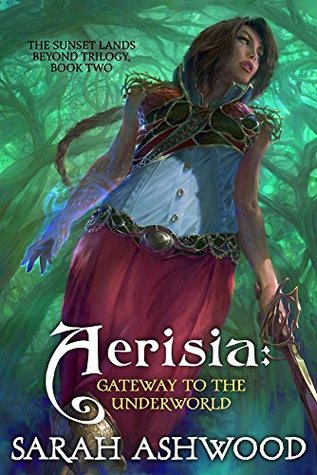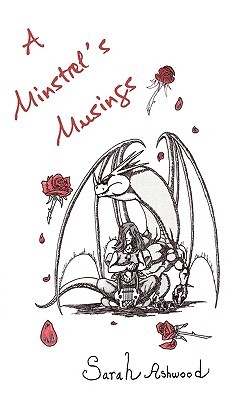The mystery of other worlds is not one Hannah Winters ever thought she’d solve. However, the day she spots a brown-robed stranger with a magical staff in a neighbor’s field is the day she also discovers Aerisia, a magical land beyond Earth’s sunset.
Description:
The mystery of other worlds is not one Hannah Winters ever thought she’d solve. However, the day she spots a brown-robed stranger with a magical staff in a neighbor’s field is the day she also discovers Aerisia, a magical land beyond Earth’s sunset.
The mystery of other worlds is not one Hannah Winters ever thought she’d solve. However, the day she spots a brown-robed stranger with a magical staff in a neighbor’s field is the day she also discovers Aerisia, a magical land beyond Earth’s sunset.
Here in Aerisia, Hannah is believed to be the Artan, a legendary heroine prophesied to deliver Aerisia from the Dark Powers. Plenty of people, including the Simathe, a race of immortal warriors, and the Moonkind, people of the Moon, are willing to help her discover her true identity, but Hannah’s just an ordinary girl from Earth. She doesn't have any latent magical abilities and she’s not the Artan. However, her allies aren't seeing it that way. Neither are her enemies. In fact, Hannah’s life is in jeopardy nearly from the moment she arrives in Aerisia. And becoming the Artan may be the only way to survive…
GUEST POST
Painful Confessions of an Aspiring Author
My name is Sarah Ashwood, and I’m the author of the Sunset Lands Beyond trilogy, which is a fantasy series published by Griffineus Publications. In the following article, you’re going to read the painful confessions of some major mistakes I made when I first started writing. The point of sharing these is to let you know what I’ve learned the hard way, so you can avoid doing what I’ve done. To that end, I’ve created five tips that I hope will serve you well on your writing journey.
 I should probably admit that, as a published author, I still haven’t landed a big publishing contract with a major publishing firm. Is that my ultimate goal? Sure it is, and I work toward it every day. In the meantime, I’m very happy to be with Griffineus Publications which, although small, has taken good care of me. I’ve also had over 30 fiction, non-fiction, and poetry pieces published by a variety of magazines and webzines. My book of poetry, A Minstrel’s Musings, was published in 2009 by Cyberwizard Productions, and I landed a topnotch New York agent the same year. Unfortunately, even though I landed the agent, the agent couldn’t land me a publisher, which sometimes happens. Talk about crushed dreams! So close, and yet so far away. I must admit, this led to a sort of identity crisis as an author, which, although it was eventually resolved, lasted over two years. Which brings me to my first point, er, confession…
I should probably admit that, as a published author, I still haven’t landed a big publishing contract with a major publishing firm. Is that my ultimate goal? Sure it is, and I work toward it every day. In the meantime, I’m very happy to be with Griffineus Publications which, although small, has taken good care of me. I’ve also had over 30 fiction, non-fiction, and poetry pieces published by a variety of magazines and webzines. My book of poetry, A Minstrel’s Musings, was published in 2009 by Cyberwizard Productions, and I landed a topnotch New York agent the same year. Unfortunately, even though I landed the agent, the agent couldn’t land me a publisher, which sometimes happens. Talk about crushed dreams! So close, and yet so far away. I must admit, this led to a sort of identity crisis as an author, which, although it was eventually resolved, lasted over two years. Which brings me to my first point, er, confession…
So you’ve got the idea, you’ve got the outline planned, or maybe you’ve actually written the book. You think it’s good, it’s got a real chance of avoiding the slush piles and the rejection letters. You think it will be the next best thing to break onto the literary world. So did I. Then came the first rejection, then the second, then the third, then dozens more. My hopes and dreams were temporarily crushed, but I knew I had to pick myself up and keep going. As writers, it’s imperative that we grow a thick skin. And I mean a very thick skin. Before you submit that first poem, short story, or novel for publication, ask a relative, friend, or colleague who is a reader (or writer), so they have some idea of what’s what, to go over it for you. Ask them to be critical, but kind. Trust me, you don’t need someone who’s simply going to read it and heap on platitudes. You need someone who’s going to be honest. Your feelings may get hurt, but, hon—this is only the beginning.
If you want to be a writer, you better expect rejection after rejection after rejection. Learn to embrace the word NO. It’s fair to say I probably received at least a couple dozen rejections for every single piece I’ve had published. Even when you finally get published, you’re going to have nitpicky editors poring over your work, ripping it apart and making suggestions. That can sting, but they’re only doing their job: trying to make your work the best it can be. Learn to embrace the surgery before the healing. When you finally get past the editors and your piece is published, be prepared for negative reviews. Those can really hurt. You feel like you’ve come so far and worked so hard to get your writing out there, then the reviewers are going to come and tear it to shreds. Sometimes you wonder if they’ve forgotten there’s a real, live human being behind the work they’re ripping up. You may be tempted to think, like I have, “Why did I bother trying to get published in the first place?” As it turns out, this is also all part of the process. Hopefully, for every negative review, you’ll receive several positive ones. Plus, there’s beauty even in pain. I’ve learned to take points from each negative review I’ve received of my trilogy, ponder them, and in some cases actually apply the reviewer’s advice. I truly feel like the subsequent books of my trilogy are better for what I learned from the negative reviews I received of the first one.
#2. Buy a Writer’s Market.
Yes, they’re expensive, but so is your time, your energy. You don’t want to waste them, and a Writer’s Market will help you avoid that. They’re worth every penny! Think of it as an invaluable investment. Not only will they give you a list of places where you can submit your work, whatever it may be and whatever type of market you have in mind, some will also have sample query/submission letters that can help you learn the basics of writing those oh-so-vital letters. I wish I’d bought one earlier on in my writing career. The first submission I wrote was to TOR Fantasy, and I handwrote it on weird green recycled paper. Ouch! I still cringe when I remember that. At least TOR was kind enough to actually send a rejection letter, instead of laughing off the whole affair as a joke.
This is an award winning website that strives to keep track of who is trustworthy and who isn’t in the agency/publishing world. This isn’t as important if you’re submitting short stories or poems to small magazines/webzines that pay very little or nothing at all, but if you’re on the hunt for an agent or book publisher, you need to know there are lots of creeps in the world who will scam you if they can. Sadly, this also happened to me, not very long after the humiliating TOR submission incident. Thankfully, I learned the true nature of this so-called agency before they bilked me out of much money, but had I known of Preditors and Editors then, I could’ve looked them up, seen they weren’t recommended, and avoided disappointment, disillusionment, and loss of funds. Talk about learning the hard way.
I actually found out about my so-called agent’s duplicity via colleagues in my online writer’s group, which leads me to my next bit of advice…
This is especially true if you’re just starting out. I wish I had done it from the onset. It would have saved me the embarrassment I now feel when I realize I basically submitted the rough draft of my trilogy to some major publishing firms when it was nowhere close to being ready, and it would’ve saved me getting hooked up with that untrustworthy agent.
Personally, I don’t think it matters if your writing group is online or in person: simply join one. Two writer’s group I was very active in for several years were Fantasy-Writers (FWO) and Christian Writers. Regrettably, I no longer have much time to give to these groups, but I look back on the years I spent in these online circles with much fondness. If you’re serious about honing your craft, writer’s groups can help you. You can obtain critiques on your writing, get advice about the publishing world and potential markets, receive encouragement when you feel like you’re getting nowhere, and hopefully pick up good friends in the process. I am still friends with several people I met in these online groups, and they are some of my biggest supporters when it comes to my writing. However, don’t expect it to come for free: i.e., if you want critiques, encouragement, and advice, be prepared to give as much as you receive!
Don’t stop writing, and don’t stop editing your own work. Be your own worst critic. Be the first to willingly chop up your work, hash it to pieces, reform it, and create something beautiful of the mess. (Hey, they’re called rough drafts for a reason.) As writers, we can be tempted to rest on our laurels once we finally complete a novel. Hey, we’ve just accomplished something huge, something that demanded hours and hours of time and effort. Something not all that many people do. However, we can’t be content to stop there. The best way to learn the art of writing is to keep writing. The best way to get published is to learn to be a better writer, and also to keep writing more pieces to be published. It all boils down to writing. So, if you want to be a writer? Write. Simply write.
FREE for limited time
About the author:
Sarah Ashwood grew up in the wooded hills outside the oldest town in Oklahoma. Sarah is author of the Sunset Lands Beyond Trilogy, the poetry volume "A Minstrel's Musings," and the novella "Amana," along with numerous other published works.
In her imagination, she soars effortlessly through historical and fantastical worlds. In real life, she lives (mostly) quietly at home with her husband and sons. Find Sarah on her Sarah Ashwood Facebook author page, on her Sarah Ashwood Goodreads page, or on Instagram
In her imagination, she soars effortlessly through historical and fantastical worlds. In real life, she lives (mostly) quietly at home with her husband and sons. Find Sarah on her Sarah Ashwood Facebook author page, on her Sarah Ashwood Goodreads page, or on Instagram








No comments:
Post a Comment